मुख्य खण्डहरू खोज्नुहोस्
जानकारीमा रहनुहोस्
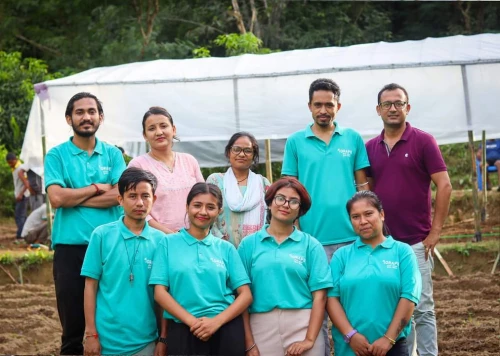
Training on climate-resilient off-seasonal vegetable farming in Surkhet
With the aim of empowering farmers to adapt to climate challenges while optimizing agricultural outcomes, a 3-day training on climate-resilient off-seasonal vegetable farming was conducted in Surkhet, supported by the GRAPE programme. A group of 25 farmers participated in a comprehensive learning experience that integrated theoretical instruction with hands-on application.
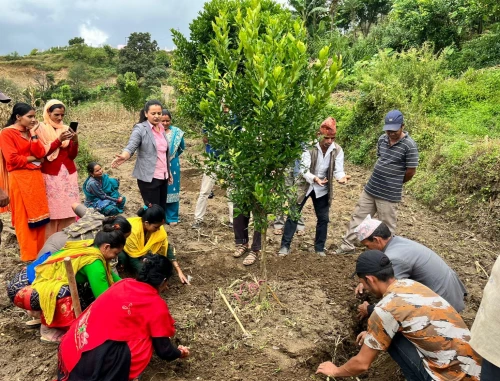
Citrus Orchard Management training
A group of 20 farmers in Dullu, Dailekh, received a 3-day Citrus Orchard Management training supported by the GRAPE programme. Recognizing the high potential for citriculture in Dullu, training addressed key areas, including general citrus fruit knowledge, orchard establishment, climatic requirements, improved varieties, transplantation, and manure and irrigation requirements. Farmers also gained insights into intercultural operations, mulching benefits, citrus decline management, disease and pest control, as well as post-harvest management and marketing strategies. The training aimed to empower farmers, enabling them to improve their methods and practices in citrus cultivation.

Autumn School for Agri-Intermediaries in Surkhet
GRAPE's Autumn School for Agri-Intermediaries in Surkhet recently brought together 23 participants working in agriculture-based organizations across various agroecological zones in Nepal.
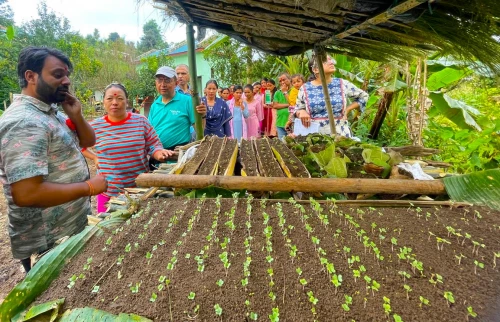
GRAPE's second joint Learning and Monitoring Visit
GRAPE's second joint Learning and Monitoring Visit across Sudurpaschim province in Dadeldhura, Doti, and Kailali marked a crucial step in comprehending the initial impacts of GRAPE's interventions. The visit, which included on-site assessments and interactive sessions brought together valuable insights from #partner NGOs, INGOs, and representatives from ICIMOD and GIZ. Key observations highlight the vital role of collaboration with local municipalities, emphasizing the essence of shared ownership. Additionally, Community Learning Centers (CLCs) have emerged as pivotal in enhancing farmers' capabilities in climate-resilient agriculture (#CRA). The active engagement of local cooperatives ensures a reliable supply of quality seeds and facilitates connections to broader markets. The visit also underscored the importance of strengthening marketing efforts for the products produced through CRA technologies to enhance their #marketability.
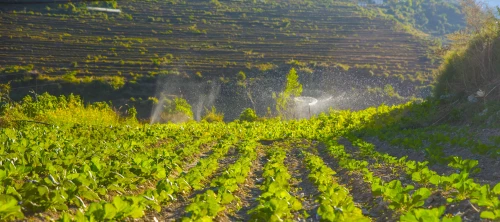
Consultative workshop on the importance of the integration and development of a curriculum on climate-resilient agriculture.
The Green Resilient Agricultural Productive Ecosystem (GRAPE) project (particularly Field of Action 2), in collaboration with the Himalayan University Consortium (HUC) and Agricultural and Forestry University (AFU), is organising a two–day consultative workshop for university faculty members and administrators on the importance of the integration and development of a curriculum on climate-resilient agriculture. The workshop aims to sensitise university stakeholders on the importance of climate-resilient agriculture, the role of the academic curriculum in improving overall climate resilience, and the process of incorporation of climate-resilient strategies into academic programmes.
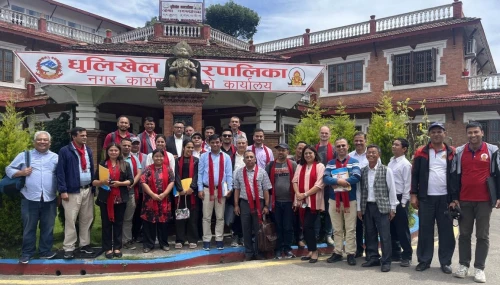
National LRED basic training
The increasing interest in Local and Regional Economic Development (LRED) across Nepal has prompted the GRAPE programme to offer phased LRED training for federal and provincial decision-makers. Sessions comprise basic, advanced, and masterclass levels. The recent national LRED basic training, held in Nagarkot, featured 18 participants from various government ministries, development agencies, and municipal associations of Nepal. Encompassing LRED basics and intervention design, the four-day training included a field trip to Dhulikhel municipality, Dulikhel hospital, Kathmandu University, and a permaculture-focused agro enterprise. This showcased how LRED institutions collaborate with enterprises for local economic growth. Advanced-level training and the LRED master class are scheduled for December 2023 and March 2024, respectively.
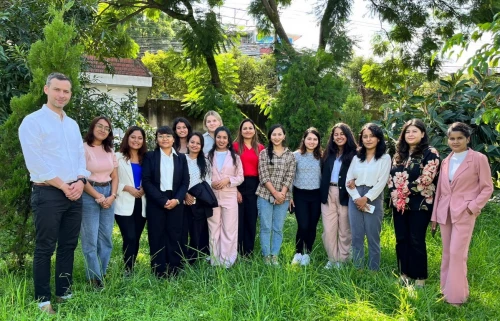
Knowledge-sharing session with 10 female STEM Research Grantees
GRAPE organised a knowledge-sharing session with 10 female STEM Research Grantees! They presented their research findings on a variety of topics: ranging from studying climate change's impact on rural agriculture to assessing the effectiveness of biofertilizers and briquettes. All are innovative solutions that GRAPE supports. The day concluded with a visit to ICIMOD's Living Mountain Lab (LML), where these students explored practical, eco-friendly, climate-smart technologies for a sustainable future.

Banana-garlic agricultural experimentation
Banana-garlic agricultural experimentation at the Community Learning Centre in Barahtal, Surkhet, shows encouraging findings. A farmer successfully grows garlic within banana stems, benefiting garlic production and protecting against stem borers and weevils. In support of these innovative initiatives, GRAPE now aims to expand to more farmers for comprehensive analysis. A thorough assessment of its impact on fruit quality, quantity, and key parameters will be conducted to gather evidence for practical recommendations and scaling efforts.

The GIZ Country Office hosted the Ambassador of Finland
Ambassador of Finland, visited the GIZ Country Office



